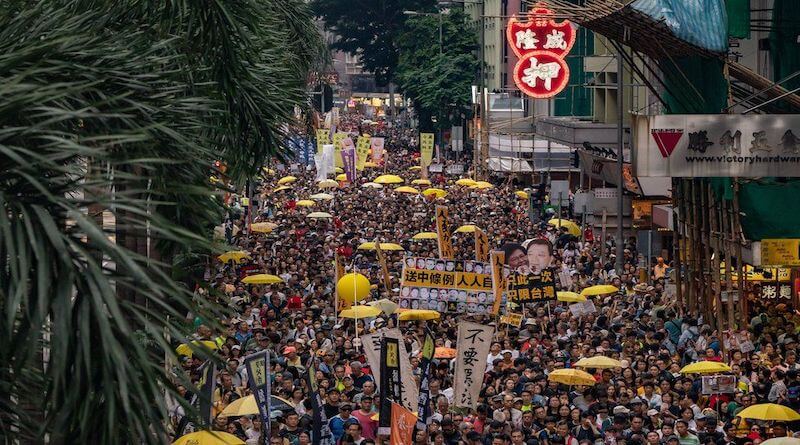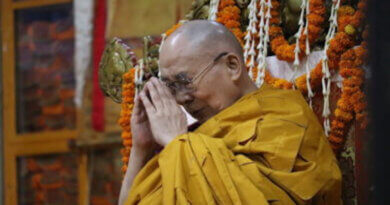Over 130,000 people march in Hong Kong against extradition law

DHARAMSALA, 29 April: Thousands of people took to the streets in Hong Kong and marched to oppose a proposed amendment to the extradition law that would allow suspects to be sent to mainland China for trial on Sunday.
Over 130,000 people marched yesterday from Causeway Bay to the Central Government Complex, the headquarters of the Hong Kong government at Admiralty in the largest demonstration since pro-democracy rallies in 2014; the Umbrella Movement in the country, according to various media reports.
Civil Human Rights Front (CHRF), a Hong Kong pro-democracy group that has organised the March vowed to organize more activities until the government shelves the proposals.
The demonstrators, many carrying Yellow Umbrella fear Beijing is trying to exert more power over the territory by revising the existing extradition law, reports the BBC.
Additionally, the Hongkongers, as well as international rights groups alike, are concerned over Beijing’s poor human rights record and opaque legal system while the last British governor of Hong Kong sees it as “an assault on Hong Kong’s values, stability and security.”
According to The Associated Press report, the March included calls for Carrie Lam, the Chief Executive of Hong Kong resign for ‘selling out’ Hong Kong to China.
Revisions to the law would allow Beijing to charge and extradite its critics with impunity where they could face vague national security charges and unfair trials.
The Chief Executive of Hong Kong announced the proposed to amend the city’s extradition laws earlier this year in February so that it would allow criminal suspects from any region—including mainland China—to seek extradition without Hong Kong’s unicameral legislature, the Legislative Council, signing off on the requests. The city’s head of government, the chief executive, would be able to approve the extradition requests directly, reports the Epoch Times.
Hong Kong, a former British colony returned to Chinese rule in 1997 under a “one country, two systems” formula, that promised a high degree of autonomy and universal suffrage as an “ultimate aim”.





